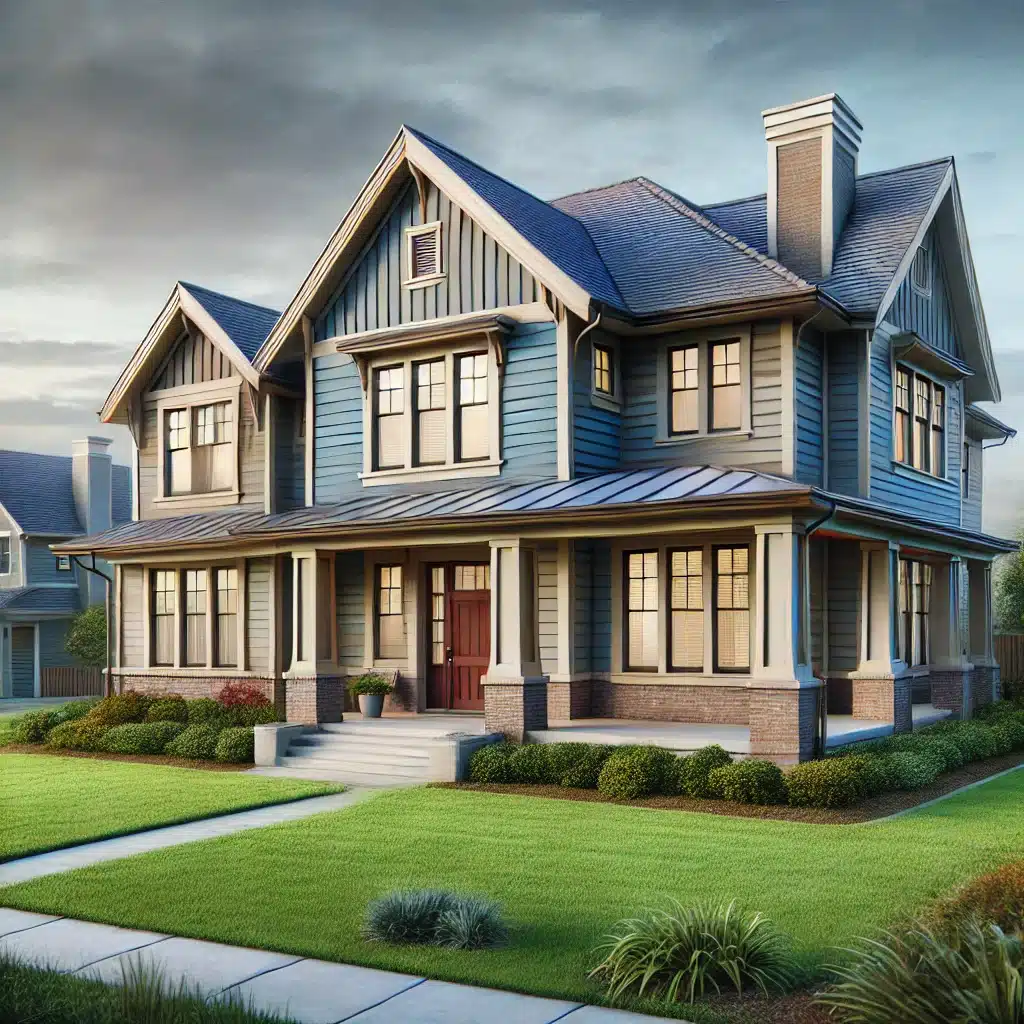Is a Home Equity Loan Required for Homeowners Insurance?
Introduction
Is a home equity loan required for homeowners insurance? Securing a home equity loan can offer financial flexibility, allowing homeowners to leverage the equity in their homes. However, most lenders require homeowners insurance as part of the loan agreement to protect their investment. In this article, we’ll cover why homeowners insurance is essential, other requirements for home equity loans, and address common questions that homeowners often have when considering this type of loan.
Key Takeaways
- Homeowners insurance is generally required to protect the lender’s investment in your home.
- Additional requirements often include a minimum credit score of 680 and at least 15%-20% home equity.
- Private mortgage insurance (PMI) may also be required in some cases.
Why Homeowners Insurance is Required for a Home Equity Loan
- Lender’s Protection: Lenders mandate homeowners insurance to secure their investment in your home in the event of damage from natural disasters or unforeseen events.
- Protection for the Homeowner: Homeowners insurance also provides ongoing financial protection for the borrower, helping them cover the costs of major repairs or rebuilds that would be unaffordable out-of-pocket.
Additional Requirements for a Home Equity Loan
- Equity Requirements: Lenders typically require homeowners to have between 15% and 20% equity in their homes to qualify for a home equity loan.
- Credit Score: A strong credit score is essential, with most lenders seeking a minimum FICO score of 680 to reduce their lending risk.
- Debt-to-Income Ratio: Lenders evaluate the borrower’s debt-to-income ratio to assess their ability to repay the loan.
Understanding Private Mortgage Insurance (PMI)
In some cases, lenders may also require private mortgage insurance (PMI) if the borrower has a lower equity percentage or a less robust credit profile. PMI provides additional protection for the lender and can be an added cost for the borrower, depending on the loan amount and specific lender policies.
Case Study: The Importance of Homeowners Insurance in Loan Approval
A recent case highlights how homeowners insurance plays a vital role in securing a home equity loan. [Example case: Describe a hypothetical situation where a homeowner with sufficient equity and credit score nearly lost loan approval due to lapsing homeowners insurance, emphasizing the lender’s response and final loan conditions.
FAQs: Is a home equity loan required for homeowners insurance?
Do you need homeowners insurance for a home equity loan?
Yes, homeowners insurance is typically required for home equity loans to protect both the lender and the homeowner’s investment in the property.
What is required for a home equity loan?
Key requirements generally include:
- Homeowners insurance
- A minimum of 15%-20% equity in the home
- A credit score of 680 or higher
- Acceptable debt-to-income ratio
What disqualifies you from getting a home equity loan?
Factors that could disqualify you include a low credit score, insufficient home equity, or a high debt-to-income ratio. Lapsing on required homeowners insurance may also impact approval.
Do home loans require mortgage insurance?
Yes, home loans often require private mortgage insurance (PMI) if the borrower has less than 20% equity. PMI is a safeguard for lenders in cases where the equity or credit profile is lower than ideal.
Pain Points in Homeowners Insurance and Home Equity Loans
While securing a home equity loan can be an effective way to access funds for home improvements, debt consolidation, or other expenses, borrowers often encounter niche pain points that go beyond the standard requirements. These challenges, though less common, can significantly affect the loan approval process and the overall borrowing experience. Below are 10 nuanced challenges and considerations:
1. Limited Insurance Coverage for Older Homes
Older homes may require additional coverage or riders for issues such as outdated electrical systems or plumbing, which can increase premiums. Some lenders may require these upgrades before approving the loan.
2. Disaster-Prone Areas and Higher Premiums
If your home is in a high-risk area for natural disasters (e.g., hurricanes, earthquakes, or floods), lenders may require additional insurance policies, such as flood insurance or windstorm coverage. These can add substantial costs.
3. Undervalued Coverage Policies
Many homeowners unknowingly purchase insurance policies that understate the replacement cost of their home. Lenders often review these policies and may require you to upgrade coverage before finalizing a home equity loan.
4. Lender-Specific Insurance Requirements
Some lenders may have unique stipulations, such as requiring proof of extended dwelling coverage or higher liability limits. Meeting these requirements can delay loan processing.
5. Impact of Policy Lapses
A lapse in homeowners insurance, even if unintentional, can result in loan denial or the imposition of force-placed insurance by the lender. These policies are typically more expensive and offer limited coverage.
6. PMI Layered with Insurance Costs
For borrowers with less than 20% equity, the combined cost of private mortgage insurance (PMI) and required homeowners insurance can strain monthly budgets, making the loan less appealing or unaffordable.
7. Unanticipated Home Appraisal Adjustments
A home appraisal may identify risks or deficiencies (e.g., structural issues or roof damage) that require additional insurance coverage, increasing costs before loan approval.
8. High Deductible Policies
Borrowers attempting to lower premiums with high-deductible insurance policies may face pushback from lenders, who often require deductible limits to be below a specific threshold.
9. HOA and Condo Association Requirements
If the property is part of a homeowner’s association (HOA) or a condo association, additional insurance requirements may be imposed, such as a master policy that satisfies both the lender’s and the association’s criteria.
10. Insufficient Knowledge of Coverage Gaps
Borrowers often lack awareness of coverage gaps, such as excluded perils (e.g., mold, termite damage, or sewer backups), which could leave them vulnerable to out-of-pocket costs. Lenders may flag these gaps during the review process.
Addressing Niche Pain Points: Proactive Steps
- Work with an Insurance Advisor: Collaborate with a professional to identify and resolve potential gaps or challenges in your homeowners insurance coverage.
- Understand Lender Expectations: Ask for a detailed list of insurance requirements early in the application process to avoid surprises.
- Bundle Insurance for Savings: Explore bundling policies (e.g., home and auto insurance) to offset additional costs associated with lender requirements.
By addressing these niche pain points, borrowers can better prepare for the complexities of securing a home equity loan while ensuring their property is fully protected. For assistance with tailored homeowners insurance policies that meet lender requirements, contact Hotaling Insurance Services today.
Conclusion: Is a home equity loan required for homeowners insurance?
Homeowners insurance is a crucial requirement for securing a home equity loan, providing protection for both the lender and the homeowner. Understanding the full spectrum of requirements—from credit scores to debt ratios—can improve your chances of loan approval and help you make informed financial decisions.
For more information or to explore your options, contact us at Hotaling Insurance Services.



